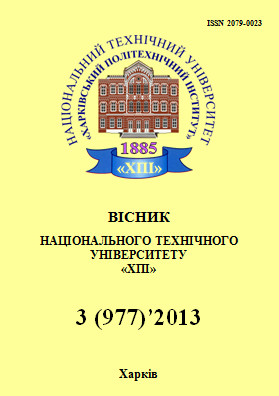Подход к верификации правил с использованием лингвистических переменных в задачах интеллектуального анализа процессов
DOI:
https://doi.org/10.20998/%25xAbstract
Предложен подход к верификации правил в задачах интеллектуального анализа процессов, направленный на выявление противоречий в ограничениях на процесс в условиях использования скрытых (неявных) знаний.References
Van der Aalst, Wil M. P. Trends in Business Process Analysis: From Verification to Process Mining // Proceedings of the 9th International Conference on Enterprise Information Systems «ICEIS 2007». – Portugal: Institute for Systems and Technologies of Information, Control and Communication, 2007. – P. 12–22.
Чалый С. Ф. Оценивание непротиворечивости правил бизнес-процесса на основе проверки наборов входных и выходных данных / С. Ф. Чалый, А. А. Кривчикова // Бионика Интеллекта. – 2011. – №1. – С. 79–83.
Wil M. P. Process Mining Discovery, Conformance and Enhancement of Business Processes / Wil M. P, Van der Aalst – Springer, New York – 2011. – 352 p.
Boudewijn van Dongen Process Mining and Verification / Boudewijn van Dongen – Stellingen, Eindhoven, 2007. – 263 p.
Левыкин В. М. Логическая модель представления бизнес-процесса для решения задач интеллектуального анализа процессов / В. М. Левыкин, С. Ф. Чалый, А. А. Кривчикова [и др.] // Бионика Интеллекта. – 2010. – №1.– С. 24–29.
Шлезингер М. И. Оптимизационные задачи разметки и их эквивалентные преобразования / М. И. Шлезингер, К. В. Антонюк, Е. В. Водолазский // Управляющие системы и машины. – 2011, № 2. – с. 55-70.
Downloads
Published
How to Cite
Issue
Section
License
Copyright (c) 2015 Вестник Национального технического университета "ХПИ". Серия: Системный анализ, управление и информационные технологииAuthors who publish with this journal agree to the following terms:
- Authors retain copyright and grant the journal right of first publication with the work simultaneously licensed under a Creative Commons Attribution License that allows others to share the work with an acknowledgement of the work's authorship and initial publication in this journal.
- Authors are able to enter into separate, additional contractual arrangements for the non-exclusive distribution of the journal's published version of the work (e.g., post it to an institutional repository or publish it in a book), with an acknowledgement of its initial publication in this journal.
- Authors are permitted and encouraged to post their work online (e.g., in institutional repositories or on their website) prior to and during the submission process, as it can lead to productive exchanges, as well as earlier and greater citation of published work (See The Effect of Open Access).

